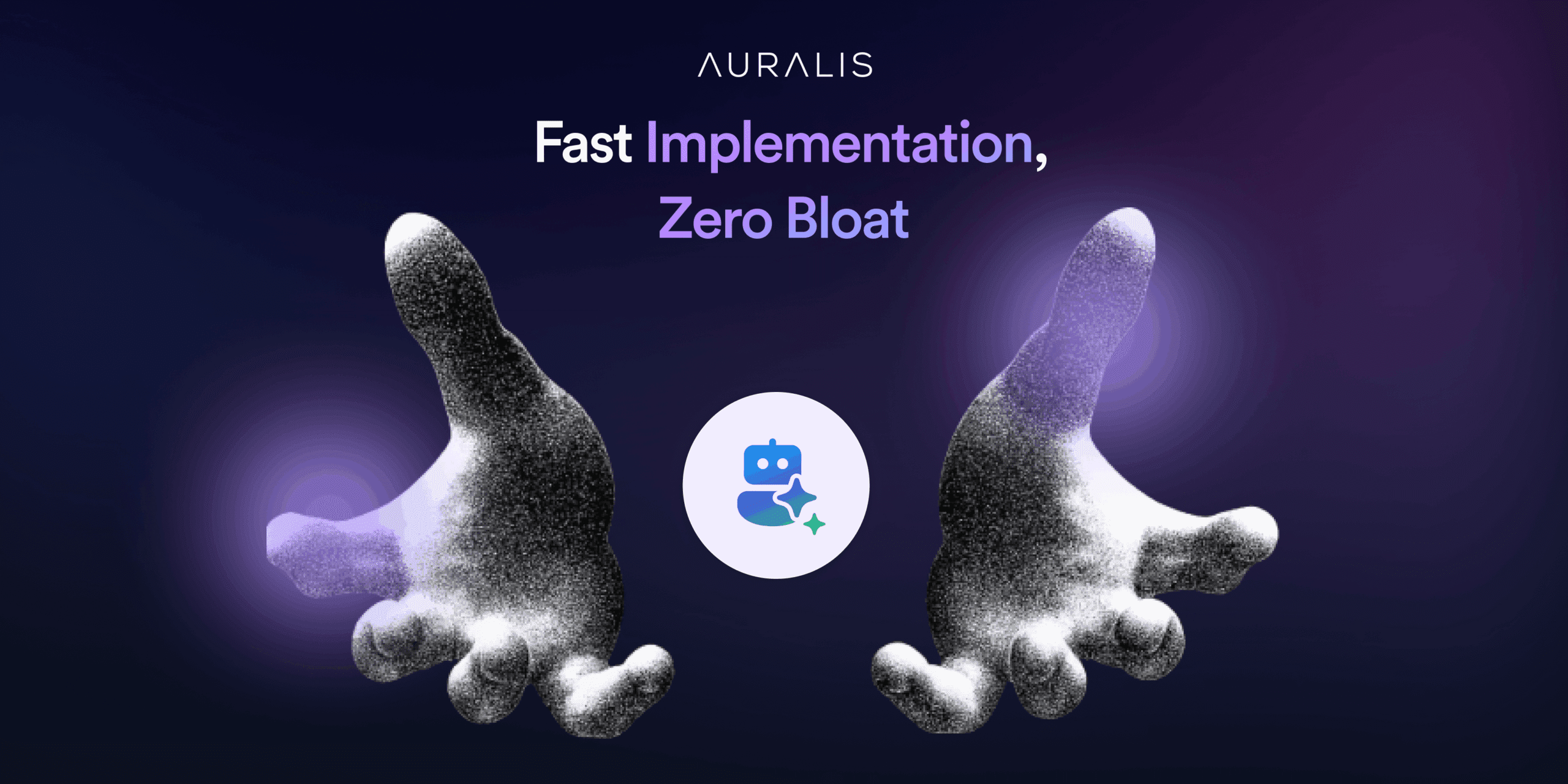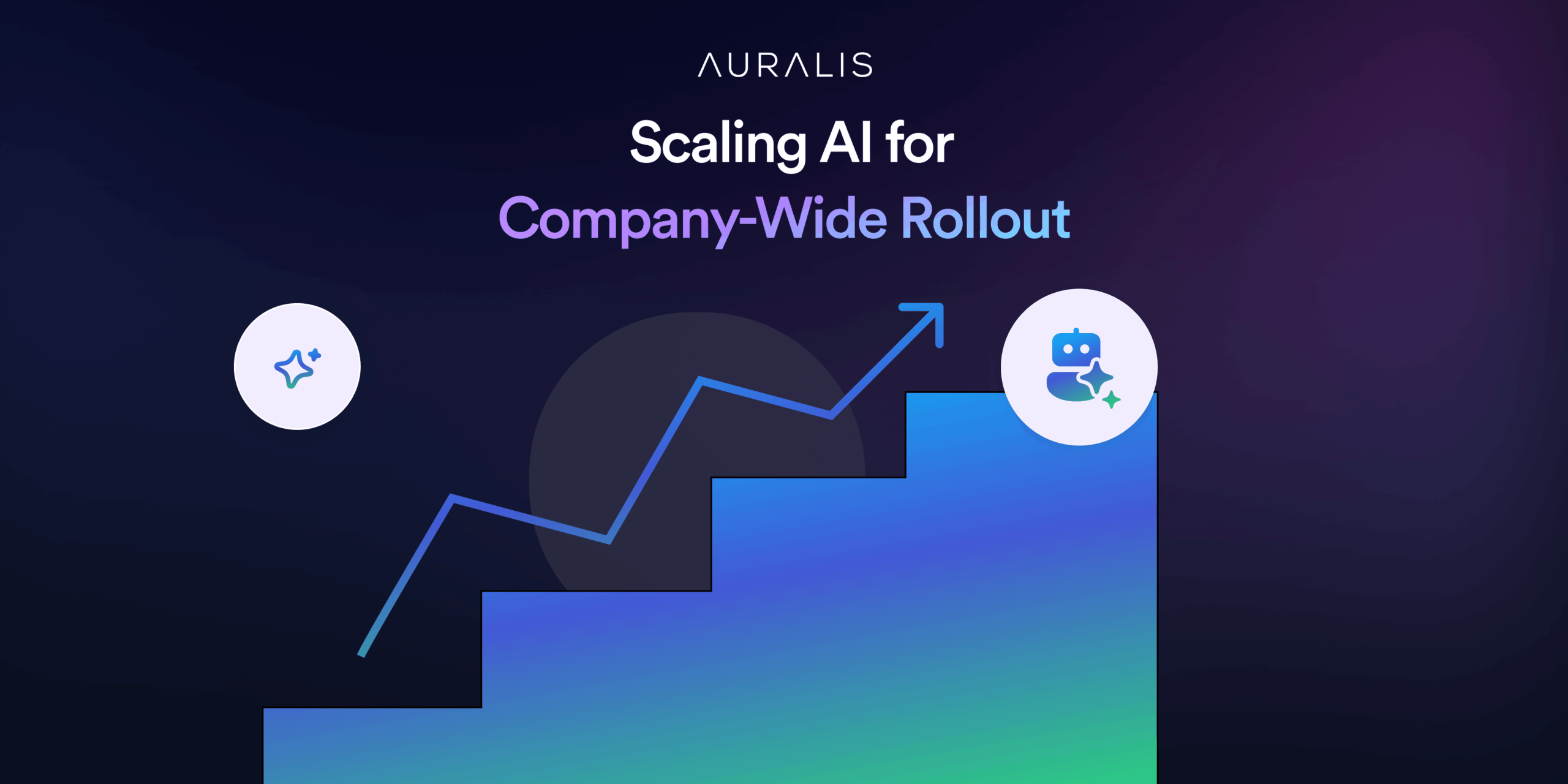From long diagnostic cycles to frequent site visits, customer support for companies with complex products is not easy.
Whether you’re a company offering medical imaging devices, additive manufacturing tools, or industrial machinery, customers expect faster resolution and minimum downtime.
However, with increasing product complexity, traditional service models are falling short.
That’s where AI steps in.
From intelligent triage to smarter resolution planning and even post-visit engagement, AI is transforming field service operations.
In this blog post, we’ll see how to use AI for field support and improve customer satisfaction.
What is field support for complex products?
Field support for complex products is not just limited to technical assistance for complex, high-value systems, but goes beyond it.
It includes training the customers on how to use the products efficiently, conduct regular maintenance check-ups for the optimum functioning of the product, and offer recommendations to the customer for any upgrades and improvements.
Some of the common industries that extensively use field support include healthcare (MRI, CT), additive manufacturing (3D printers), aerospace systems, heavy industrial machinery, lab automation, etc.
What makes field support challenging in such complex industries is high variability, multiple configurations, limited expertise, long diagnostic and resolution cycles. Here, even a small issue can lead to significant downtime affecting the company’s revenue.
Effective field support ensures minimal disruption, maximizes uptime, and provides the expert care these sophisticated systems demand to function without any hiccups.
The challenges of traditional field support models
With the growing customer demands for faster resolution, the traditional field support models are no longer efficient enough to meet the desired service quality, resolution time, or customer satisfaction.
Manual ticket triage slows first response
In the traditional model, the support tickets are routed manually, which delays the resolution time. For example, a ticket might be routed to the wrong team or misprioritized, thus delaying the response time.
High dependency on SMEs (subject matter experts) and superusers
Traditional models heavily rely on subject matter experts for resolution. This means that when these SMEs are unavailable, resolution becomes delayed, risking customer dissatisfaction.
Technicians often arrive with incomplete context
Many times, the technicians arrive on the field site with incomplete context, like previous resolution attempts or the machine’s configuration history.
Lack of context means the technicians need to spend time gathering the basic inputs before they can actually begin troubleshooting.
Documentation is scattered, leading to longer diagnosis/resolution
In manual support models, documentation like technical manuals, troubleshooting guides, or past service records is often stored in a scattered way. This means that the technician has to scout through paper files and storage to find the relevant document, leading to longer resolution time.
Feedback from field visits rarely closes the loop
The manual support model lacks a structured feedback system. As a result, the feedback from the field visits does not reach the product team or the service playbooks. So the organization misses the opportunity to learn and improve its products/services.
Scheduling inefficiencies, especially with limited engineer availability
Scheduling engineers can also be challenging, especially for companies with limited engineer availability. Such scheduling delays can further add to customer dissatisfaction.
However, you can turn the table and change this narrative with the help of technology and AI. From optimizing technician workflow to improving customer experience, AI brings productivity, accuracy, and efficiency in field support for complex products.
How AI transforms the field support workflow
Let’s understand how you can use solutions like Auralis AI at every step in field support:
Pre-Visit
AI algorithms can analyze support tickets, past data, and equipment telemetry and predict the need for an on-site visit.
AI can also recommend targeted diagnostic steps remotely before dispatching an engineer. For example, remote resets or software updates can be conducted for complex systems like CT/MRI scanners and reduce the resolution time.
Technicians can be well-prepared with AI-curated probable issue paths and relevant documentation before arriving in the field.
During Visit
AI guides field engineers with contextual KBs, step-by-step guidance, and interactive troubleshooting flows in real-time based on the inputs captured during diagnosis.
Conversational AI can support engineers by answering technical questions, retrieving circuit diagrams, and initiating escalations.
As the technicians carry on their job, a smart documentation system logs all the actions taken along with customer feedback. All these notes can be auto-captured and fed into the system, eliminating the need for any manual documentation.
Post-Visit
Post the engineer visit, AI logs insights from service notes into structured formats, updates the knowledge base with resolution details, and triggers follow-up support or client feedback surveys as necessary.
Key AI capabilities that improve field support
Here’s what makes AI an enabler:
Intelligent ticket triage and routing
AI helps to tag tickets accurately by analyzing the priority of the issue, product category, and even customer sentiments.
AI-powered knowledge retrieval
AI helps engineers to retrieve useful information easily by analyzing the ticket query. Not just that, it continuously evolves itself through ongoing learning, becoming more accurate and efficient over time..
On-site technician assistants (Chat/Voice)
Voice and chat-enabled assistants allow engineers in accurate diagnosis and resolutions.
Predictive maintenance and failure detection
One of the biggest capabilities of AI is to predict future problems. This helps to address issues on time, avoiding the risk of failure and system downtime.
Automated documentation and feedback capture
AI helps in real-time note capturing and gathering customer feedback, which is then shared back with the key team members. It helps to close the feedback loop so no data gets misplaced.
Benefits of AI-Enhanced Field Support
Some of the significant benefits of AI-powered field support include:
Faster first-time resolution rates
AI enables efficient scheduling and routing of technicians based on the real-time data available. Since technicians have immediate access to all the relevant documents/data, customers can expect faster resolutions with minimum downtime.
Reduction in time-to-dispatch and visit preparation
AI plays a significant role in reducing dispatching and visit preparation. Using smart scheduling and optimization algorithms, AI can check for technician availability, skills, location, and job urgency to build the most efficient schedules in real time.
Lower repeat visit rates and escalations
From forecasting potential failures to assisting engineers with instant access to technical manuals and past service records, AI allows engineers to work more efficiently without the need for escalations.
Improved field engineer productivity and satisfaction
With AI-powered mobile apps, driven by machine learning and Natural Language Processing (NLP), technicians no longer need to enter data manually on spreadsheets.
AI can automatically pull key information from equipment sensors, customer databases, and past service records to populate real-time apps.
With NLP and voice recognition, technicians can easily access critical data, update job statuses, and manage tasks hands-free.
All these result in better efficiency, fewer errors, productive engineers, and happier customers. In fact, a study found that integrating AI with mobile tools boosts field service productivity by 30% to 40%, proving just how transformative this technology can be.
Reduced support costs and downtime
AI and machine learning work great in asset service management through predictive analytics. With different statistical modeling and data mining techniques along with sensor readings and past data, AI can predict equipment failure and schedule proactive maintenance. This helps to minimize downtime and reduce support costs.
Continuous improvement through feedback loop automation
Through AI-powered tools, engineers can enter all the valuable customer feedback that can then be sent to the product team and customer success team. Automating this process helps the company to work on customer feedback proactively to improve its process and offer better customer care.
Example of use cases across industries
AI can help field support across various industries, including:
- Medical Devices: AI comes in handy for triages of CT/MRI scanner tickets and recommends if remote resets can solve the issue, or it dispatches for escalation.
- 3D Printing: In the 3D printing industry, AI guides engineers in recalibration, nozzle replacements, and post-processing troubleshooting, etc.
- Industrial Automation: AI is largely used in the industrial automation industry to pre-load service histories and wiring diagrams before dispatch.
- Lab Equipment: For lab equipment, technicians can use voice-guided AI support to handle in-situ repairs in regulated environments.
What to look for in an AI field support solution
If you’re ready to explore AI-powered support solutions for your complex and regulated product/service, here are some breakdown of capabilities for you to consider.
Choose an AI solution that seamlessly integrates with your ERP, ticketing, and knowledge systems. This will ensure that the field engineers can have real-time access to parts inventory, job histories, and customer data from a single solution.
Go for a solution that offers offline support or caching. This comes in handy, especially in remote locations or infrastructure-heavy locations. This way, technicians can still access crucial documents even without the internet.
Enterprise-grade security and compliance (SOC 2, HIPAA, etc.) is non-negotiable, especially in regulated industries. So choose an AI solution that offers encryption, audit logs, and role-based access control while adhering to industry regulatory guidelines.
AI solutions that offer multi-language and multi-modal access via web, mobile, and voice ensure a consistent user experience irrespective of location, device, or language.
Field service workflow varies from industry to industry. So, go for an AI solution that lets you do customized workflow to support specific operational standards.
Conclusion
Be it intelligent triage or real-time guidance, AI enables companies to streamline their field support for complex products while improving their efficiency.
If you’re seeking one such solution that could build out custom workflows tailored to your business, book a demo of Auralis AI today.



 9 min read
9 min read 

